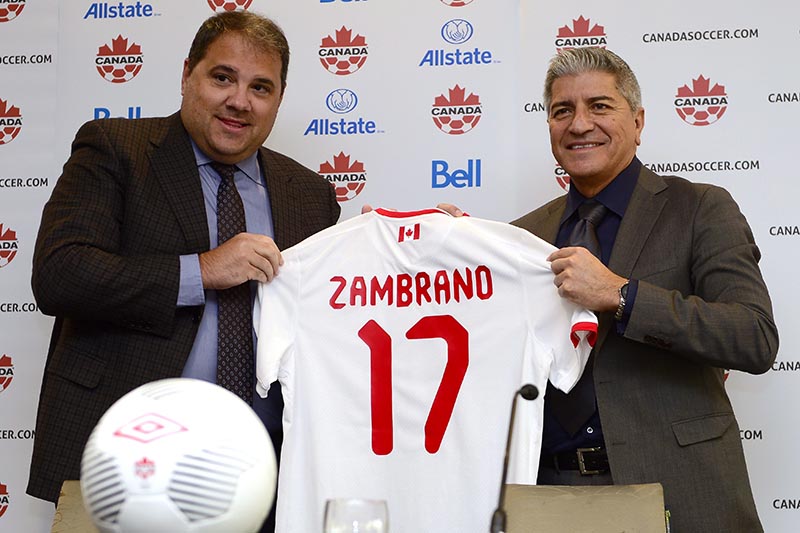FIFA panel to review national team match schedule
ZURICH: Reviewing FIFA's schedule of national team match dates is top priority for the world body's new football stakeholders committee that includes clubs and player unions.
FIFA vice president Victor Montagliani told The Associated Press after chairing the panel's first meeting on Thursday that the international calendar was "obviously the big behemoth" on an agenda that includes transfer market reform, players' health, and respect for contracts.
A proposed pan-American Copa America in June 2020 — likely hosted in the United States — could be organized only if FIFA changed the current calendar agreed through 2022.
FIFA's calendar sets dates when players must be released to national team duty, and has long provoked dispute with clubs.
"The meeting was very positive. People are keen to get stuff done," said Montagliani, the Canadian president of CONCACAF. The Miami-based soccer body is working with South American confederation CONMEBOL on a follow-up to the Copa America centenary tournament in the U.S. last June.
"The calendar is set for good, bad, or ugly till 2022-23 but it's a good sign that FIFA is completely open-minded with the stakeholders," Montagliani said.
FIFA senior staffers Marco van Basten and Zvonimir Boban are advising the stakeholders panel. Teammates at AC Milan 25 years ago, Van Basten is a FIFA technical director and Boban is deputy secretary general with responsibility for soccer matters.
The panel membership includes delegates from clubs, leagues, and unions worldwide, though is weighted toward Europe which employs most players selected for major tournaments.
Previous rounds of calendar debates saw European clubs persuade FIFA to scrap national friendlies in February and mid-August.
In the calendar for 2018, FIFA protected a two-match period in each of March, September, October, and November for national teams, plus almost two months for the World Cup preparations and tournament in Russia.
In 2020, non-European national teams are allowed two matches from June 1-9, before the European Championship kicks off.
A 2020 Copa America of teams from North and South America would likely go head-to-head in June with the Euro event, as it did in 2016.
Montagliani said his panel members were taking "a step back from a bit of an attitude" in past negotiations.
"Maybe people were playing a zero-sum game — it's either my way or your way," he said at FIFA headquarters. "There was none of that attitude today."






